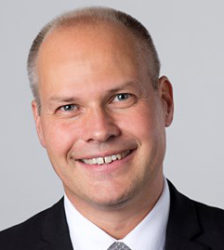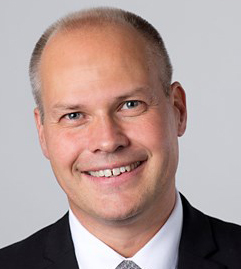STOCKHOLM, (Reuters) – The European Union has the capacity to absorb a million refugees a year, and could force through new asylum rules by majority voting if consensus cannot be reached, Sweden’s migration minister said in an interview yesterday.
“Europe as a continent must bear its responsibility for the global refugee crisis,” said Morgan Johansson, minister for justice and migration in the centre-left government.
“We are the world’s richest continent and it is obvious that if anyone can actually handle this, it is Europe with its 500 million inhabitants,” he told Reuters.
Sweden punches above its weight on migration issues in the EU because of its historically liberal policies and the fact it accepted more asylum seekers last year than any other country, in proportion to its 10 million population.

But Johansson’s comments highlighted the gulf separating Sweden from much of the EU at a time when central European states are fighting the imposition of quotas stipulating how many refugees they should take, and German leader Angela Merkel is under fire at home for her open-door policy.
Some 1.3 million migrants reached Europe’s shores last year from countries like Syria, Iraq and Afghanistan, prompting bitter rows between member states over how to share responsibility.
Johansson said a permanent mechanism to distribute asylum seekers among EU countries, another quota system to accept a specified number of refugees from camps outside Europe, and more harmonised asylum rules in member countries were all needed.
“And if we cannot agree, there are rules for making decisions that can be used. It is majority decisions that are applied in this area too,” he said.
“The European Union should be able to receive 1 million refugees per year.”
Sweden took a record 163,000 asylum seekers in 2015 but this is expected to fall to around 35,000 this year due to stricter asylum rules and border controls, as well as measures making it harder for refugees to enter the EU. These include a deal with Turkey to reduce the number of people crossing its territory to reach Greece.
Johansson said he had summoned Hungary’s ambassador last week to protest against the country’s unwillingness to accept asylum seekers who first registered there before travelling on across Europe, and who should be sent back there under the EU’s Dublin rules.
He said he and his Nordic colleagues had also written a letter to the EU Commission saying it needed to act against Hungary, which has built a razor-wire fence to keep out migrants and is due to hold a referendum next month on whether to reject refugee quotas.
“Worst case, Hungary will need to be taken to court,” Johansson said.
The EU depends on Turkey to keep a lid on the movement of migrants to the bloc, but the promised reward of visa-free travel for Turks has been stalled because of the EU’s insistence that Ankara should first relax its anti-terrorism laws.
“When it comes to that, the ball is in Turkey’s court, really,” Johansson said.
In a reflection of the knock-on effects of migrant flows across Europe, he said Sweden needed to be sure a backlog of unregistered asylum seekers in Germany had been dealt with before it could drop controls on its border with Denmark.
Sweden was also working hard to reach a deal with Afghanistan to get it to take back any rejected Afghan asylum seekers.

